COVID-19 presents unique challenges for medical institutions. “COVID-19 pandemic abruptly changed the organized way in which medical students were trained not just in Adichunchanagiri Institute of Medical Sciences, but, across the globe. The students were suddenly pulled out from classrooms, practical halls, hospitals and were confined to home. The faculty were forced to adapt to newer methods to engage students,” opines Dr M. G. Shivaramu, Principal & Professor of Forensic Medicine, Adichunchanagiri Institute of Medical Sciences (AIMS). Indeed, to embrace the safety and well-being of students in the context of providing patient-centred care, all in-person classes including case-based learning, lectures, discussion groups transitioned to remote teaching via an online platform, literally within several days. “There was extraordinarily little time available for a smooth transition to these newer teaching-learning and assessment methods. This has made a huge impact on medical education, which was entirely focused on training and assessment at the workplace in an orchestrated manner,” adds Dr Shivaramu.
The challenge for AIMS was to effectively deliver the curriculum and train more than 750 undergraduate students across the country and around 200 postgraduate students using newer and less explored teaching-learning and assessment methods. The institute started addressing the curriculum delivery with asynchronous teaching-learning sessions to allow the students to make a transition from face to face learning. Simultaneously, AIMS trained its faculty members in preparing quality educational resource materials for the students and in conducting live/synchronous teaching-learning sessions. “In the last six months, our faculty members have conducted close to 1300 online teaching sessions for the undergraduate and the postgraduate students. We conducted around 51 webinars, including 6 international webinars, 24 workshops for the benefit of our faculty and students. These sessions have been challenging initially for both faculty and the students. But with time, both have mastered the process of effective online learning,” explains Dr Shivaramu.
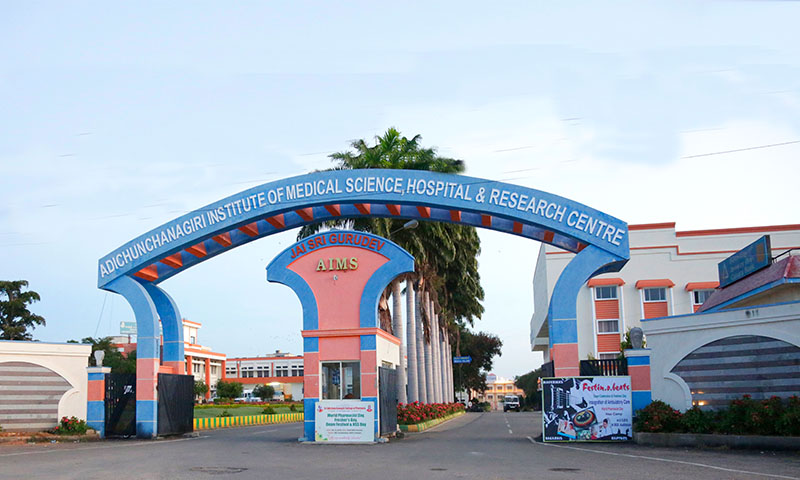
One of the significant roadblocks for AIMS during the lockdown was to provide the practical and clinical training of the students. However, the faculty members of the institute responded with utmost dedication and innovation in creating various e-learning resources to facilitate learning. They extensively conducted live demonstrations of practical classes, clinical examination and case discussions, virtual slide discussions, dissection videos, image discussions using google meet platform. Besides, AIMS took an extra step for students with network issue by making a provision for sharing these as recorded sessions via google drive and youtube. The institute also used online student responses system and google classroom effectively to conduct assessments online.
A Rural Establishment with Global Standards
Located in Mandya District of Karnataka, AIMS is one of the few institutes in the country providing health care and medical education of the highest standards to the rural population. AIMS is now a 34-years-old and was started in the year 1986 under the stewardship of Paramapoojya Jagadguru Padmabhushana Sri Sri Sri Dr Balagangadharanatha Mahaswamiji. “Since the institution is run by a spiritual organization, thrust is also given at teaching human values and spiritual well-being of students and faculty. Our Hospital stands on the principles of delivering the best professional services to the needy and poor patients from nearby villages,” shares Dr Shivaramu. The institute intents to bestow the poor and needy patients with health care at a very affordable cost. Dr Shivaramu adds, “We are glad to report that we have successfully given quality health care to more than 10 lakh men and women hailing from the surrounding villages and catering to the medical needs of the southern part of Karnataka.”
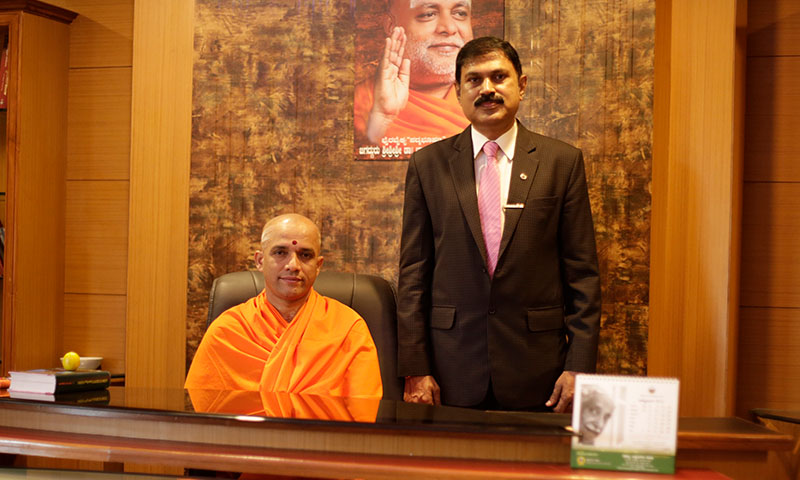
Since its inception, AIMS has been imparting education in medical sciences, including MBBS, MD/MS, and Diploma course. The institute is recognized by the Medical Council of India, General Medical Council, London, UK and was earlier affiliated to the Rajiv Gandhi University of Health Sciences, Karnataka. Since January 2018, AIMS is a constituent college of Adichunchanagiri University. The University is currently guided by the honourable Chancellor Paramapoojya Jagadguru Sri Sri Sri Dr Nirmalanandantha Mahaswamiji. “The vision of the institution is to be a centre of excellence with an emphasis on socially meaningful medical education, research, and healthcare. Our mission has been to provide outstanding educational experiences to the students through competent facilitators and supportive infrastructure that transforms today’s students to tomorrow’s confident, socially responsible health care providers,” shares Dr Shivaramu.
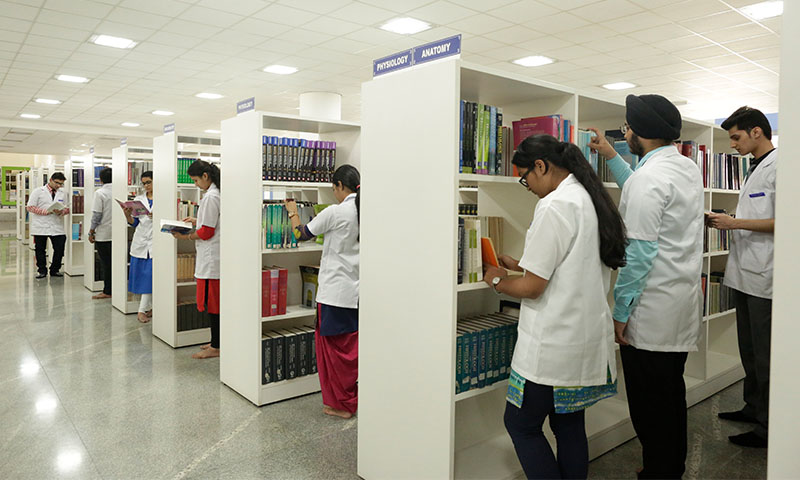
AIMS strives to provide comprehensive, culturally sensitive, cost-effective, community-oriented quality health care services to the society. The institute facilitates community-relevant quality research studies and research training programmes to the students and faculty by providing a stimulating environment that nurtures original thinking. “We inculcate value system and ethical principles of righteousness, honesty, integrity and dignity among students, staff and other stakeholders enabling them to serve with social justice and equity,” states Dr Shivaramu. At present, AIMS is ranked 12th by the Outlook magazine among India’s top Private Medical Colleges in 2020. The Ministry of Education, Government of India, has recognized the institute as a Swachhta Action Plan Institution. The Hospital also has NABH (entry-level) accreditation. “We are actively involved in the fight against the COVID. We have a state-of-the-art NABL approved RT-PCR lab for diagnosis of COVID-19 cases and have a dedicated COVID hospital involved in managing active COVID-19 cases,” shares Dr Shivaramu.
Making Global Partnerships
Being in an obscure place has never hindered AIMS to seek international collaborations. Dr Shivaramu opines, “Global partnership provides great opportunities for students and faculty to form networking which is essential for career progression. These can be research opportunities, cultural awareness, study abroad programme, student and staff exchange programmes and collaboration with other universities for awarding degrees.”
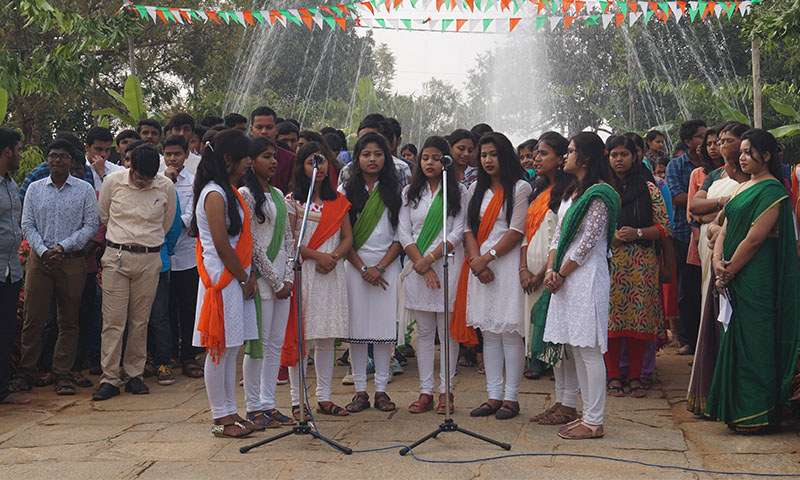
AIMS has an association with Rotaplast International Inc., an organization which is committed to helping children and families worldwide by eliminating the burden of cleft lip and/or palate, burn scarring, and other deformities. In association with Rotaplast International, the institute organizes cleft lip and cleft palate surgery camp every year. Dr Shivaramu shares, “Hundreds of underprivileged from the rural community are benefited by this programme. A team of surgeons from the US visits our college every year to conduct these surgeries. This provides a great opportunity for our students and faculty to interact and train with clinicians from abroad.”
AIMS is also associated with the Medical Students Association of India (MSAI) and the International Federation of Medical Students Association (IFMSA). MSAI is an organization, which strives to provide its medical students with numerous opportunities to become global health leaders of today and tomorrow. The International Federation of Medical Students’ Associations (IFMSA), founded in 1951, is one of the world’s oldest and largest student-run organizations. It represents, connects, and engages every day with medical students from 135 NMOs in 125 countries around the globe. Dr Shivaramu explains, “IFMSA offers a Professional Exchange program under the Standing Committee on Professional Exchange (SCOPE), which is a full educational program offering clerkships to medical students abroad.” AIMS is a SCOPE active institution in India. Besides, Adichunchanagiri Institute for Molecular Medicine (AIMM) functioning along with AIMS – Central Research Laboratory has collaboration with Greehey Children’s Cancer Research Institute, San Antanio, the USA to promote research. AIMS has also collaborated with CFTRI, Mysore for research programmes, with NIMHANS, KIDWAI Institute of Oncology, Jayadeva Institute of Cardiology, BGS Global Hospitals and HCG diagnostics for integrated PG teaching.
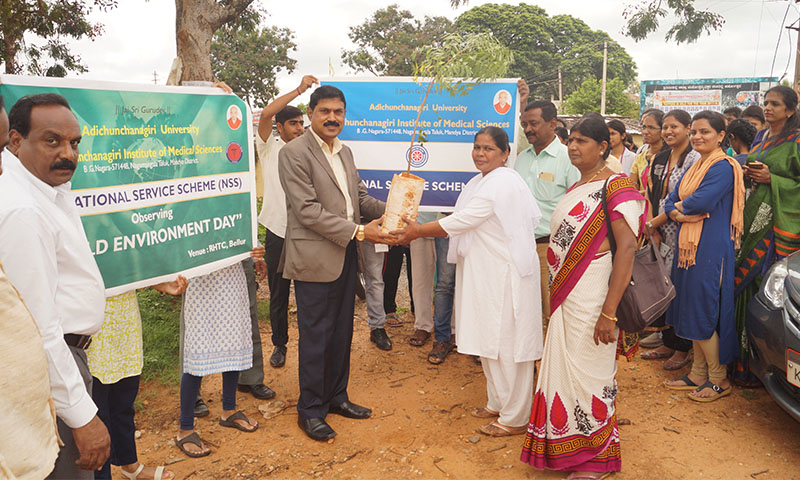
Fostering Medical Research
AIMS has a well-defined research promotion policy and has fully active scientific and institutional ethics committee which monitor and guide the research activities. The institution has set aside an exclusive budget for encouraging research activities by faculty and students. “In the last five years, we have published more than 700 research papers in peer-reviewed national and international journals. We have also carried out 50 student research projects under the sponsorship of the Indian Council of Medical Research (ICMR),” states Dr Shivaramu. In the year 2019, four undergraduate students from AIMS were awarded research grants by the Rajiv Gandhi University of Health Sciences, and eighteen undergraduate students were awarded research grants by the Adichunchanagiri University for carrying out short term research projects.
“We organize workshops on research methodology for our undergraduate, postgraduate students and faculty to encourage the research culture. We have an institutional scientific committee with trained and dedicated faculty who are involved in training and assisting the students and faculty in preparing quality research proposals and publications,” says Dr Shivaramu. AIMS offers incentives to faculty members for publishing articles in peer-reviewed, indexed journals. In addition to that, the institute publishes Journal of Medical Sciences and Health (JMSH), an indexed, peer-reviewed International open access Journal with print and online version. The journal is into the 5th year of publication and provides a common forum where all aspects of Medical, Clinical and Health Sciences research can be published. The journal is indexed with DOAJ (Directory of Open Access Journals), Index Copernicus, Advance Sciences Index (ASI), Google Scholar, International scientific indexing, Index Medicus ( Global and SEAR database), Infobase Index, National Science Library and Open J Gate.
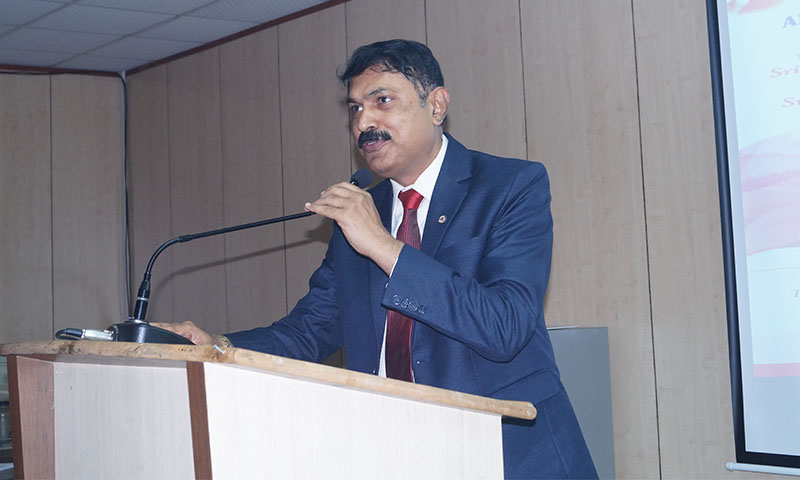
Adichunchanagiri University has established the Adichunchanagiri Institute for Molecular Medicine (AIMM), which is functioning along with AIMS – Central Research Laboratory. “The research program from 1998 till April 2017 has been mainly centred around dietary antioxidants in the prevention of oxidative stress, which is now recognized as a possible etiological factor for many diseases like cancer, arthritis, cataract, heart ailments, snakebite, malaria, bacterial, fungal infections,” shares Dr Shivaramu. It is a matter of pride that, AIMS has been funded by the National Cancer Institute of National Institute of Health towards developing the Turmeric peptide as a possible cancer preventive biomolecule under the RAPID program. The institute’s two publications have also been cited as the top entities as most read, downloaded, and cited among 2000 publications.
AIMS has been successful in bringing out impactful discoveries through its cutting-edge research activities. Dr Shivaramu claims, “We have discovered very potent antioxidant from Turmeric with a molecular weight of 8 kDa which we have named as “Arishinin”. This discovery is patented at the Chennai patent office for Indian patent and has been awarded US patent (US 8,389,677B2).” The institute was successful in identifying a death factor released by fuel, cigarette or organic smoke called as SCID (Smoke Condensate Induced Death factor). AIMS also reported death factors released from snake venom called as PID-15 (Phospholipase Induced Death factor -15). The above two factors appear to be a death signalling peptides. Besides, the institute has purified a 14 kDa protein from Turmeric and sequenced the above and registered in Swiss Uniprot (Uniprot P85278).
Now, AIMM is mainly focusing on synthesis and developing new chemical entities/ drug-like small molecules in the field of Cancer, Leishmaniasis and Diabetes. The drug discovery involves the identification of lead molecules, screening hits, and optimization of those hits to increase the affinity, selectivity, efficacy/potency, metabolic stability, and bioavailability. “We are actively involved in synthesizing heterocyclic compounds to target proteins involved in DNA repair, cancer metastasis and many more. Apart from above said disease filed, we are also in a thrust of identifying small molecules and biomarkers for the cardiovascular diseases and diabetes,” shares Dr Shivaramu.
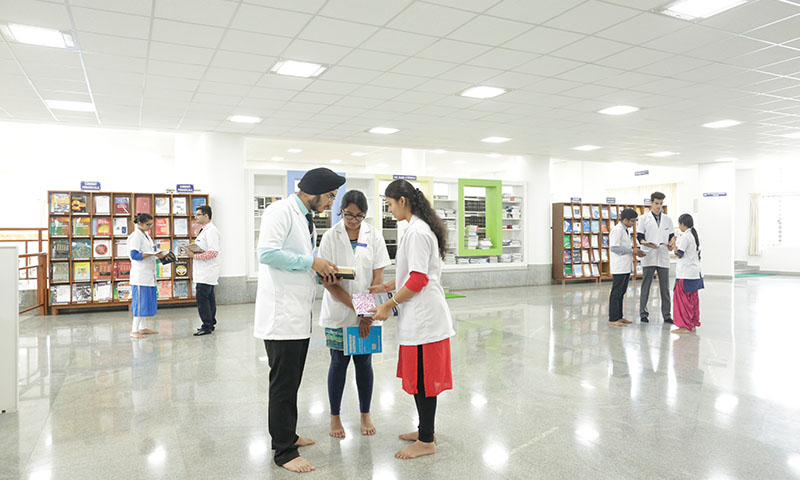
A Team of Dedicated and Highly Experienced Faculty Members
The teaching faculty at AIMS is a unique blend of youth and the experienced. “As on today we have a workforce of around 180 teaching faculty who are involved in providing health care to patients and medical education of global standards to the undergraduate and postgraduate students,” pinpoints Dr Shivaramu. To provide training for the faculty members in medical education technologies, AIMS has a well-established Medical Education Unit (MEU) within the campus. More than one-third of faculty members are trained in Medical Council of India recognized, Revised Basic Medical Education Technology Programme and Curriculum Implementation Support Programme, which has facilitated effective planning, design, and delivery of the curriculum. Dr Shivaramu adds, “We conduct regular faculty development programs for training the faculty to keep them updated with latest in the field of medical education and to help them in the process of effective curriculum design and implementation.”
Faculty members of AIMS consistently use newer, technology-enabled, student-centric, teaching-learning and assessments methods to provide an enriched learning experience. They are also involved in a unique student mentoring program, which provides student support and facilitates student progression, including career planning. “Faculty members are not only involved in academic work but also play an important role in the administration. They are an integral part of the Internal Quality Assurance Cell, NAAC/NABH committee, NIRF committee and are responsible for preparing documents for the institutional accreditation process and for student career guidance,” explains Dr Shivaramu. AIMS faculty are also serving as members of the Senate, Board of Studies and Academic Councils of some of the reputed universities in the country.
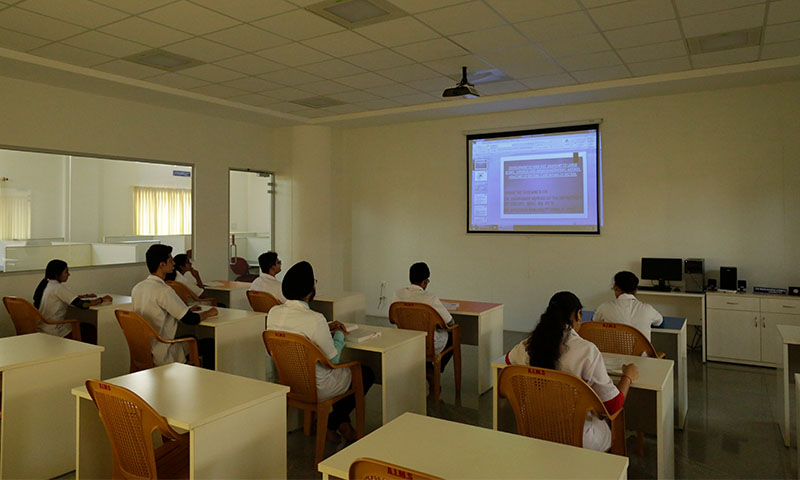
With the help of such quality faculty members, Students of AIMS have always made the institution proud by achieving academic excellence. In the last 5 years, undergraduate students of AIMS have secured 15 ranks, and postgraduate students have secured 37 ranks under Rajiv Gandhi University of Health Sciences. “Our students have also excelled in the field of research. Over the last 5 years, 50 research proposals have been accepted by the Indian Council of Medical Research (ICMR) under the short-term studentship programme (ICMR-STS), 4 research proposal under student research grants of Rajiv Gandhi University of Health Sciences and 18 research projects under Adichunchanagiri University,” claims Dr Shivaramu.
Every year 30-40% of AIMS graduates secure the postgraduate seats in the best of the medical colleges in the country and abroad. Dr Shivaramu shares, “Our graduates are serving in the army, central and state government services, corporate hospitals, and various NGO’s. We feel proud to say that every year our own alumni join back to serve their alma matter.” Recently a batch of students from AIMS has been selected under the Standing Committee on Professional Exchange (SCOPE) under the International Federation of Medical Students Associations (IFMSA). Besides, AIMS students have been outstanding even in extracurricular activities as well. They have brought laurels to the institution in sports and cultural activities at various University, State and National level.
A Dream Campus for Every Medical Aspirant
AIMS is housed in a unitary Wi-Fi enabled campus of about 48.22 acres of unpolluted and pristine surroundings near its teaching hospital with plenty of room for future expansion. All buildings are spacious from within while their exteriors are aesthetically designed. The College complex features large, digitally-enabled Theater Classrooms, Lecture Rooms, Laboratories, R & D Center, an Anatomy Museum, the Administration Block and an Open-Air Stage in its Central Courtyard. The campus also features an elegant Residency complex for students, a Food Court and ATM facilities.
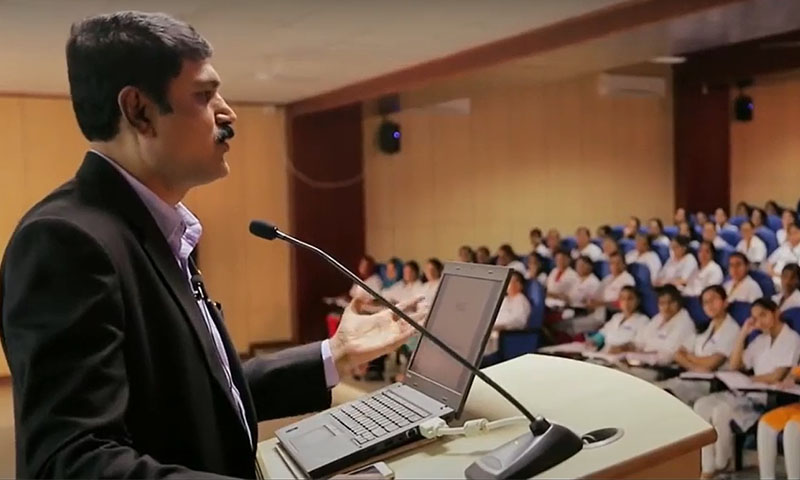
The aesthetically built centrally air-conditioned Auditorium is AIMS’ pride-of-place with towering columns and majestic steps that lead into a hall of 2000 seating capacity complete with a professionally designed stage fitted with motorized screens and a sophisticated sound and light system. At the ground level of this magnificent edifice is a state-of-the-art, centrally air-conditioned Learning Resource Center featuring the latest volumes of medical literature, a Digital Classroom and vast study areas.
On the other side, Adichunchanagiri Hospital and Research Center (AHRC) was commissioned in 1990 to render affordable healthcare services to the poor and the needy. “The programmes offered here include assessed clinical experiences, an essential component of academics, supported by purpose-built facilities and technology, designed to replicate real-life situations. Advanced coursework is informational and enriched by hands-on learning from mentors who push the boundaries of knowledge,” states Dr Shivaramu. Today, the Hospital provides priceless teaching and training ground for AIMS Undergraduates and Postgraduates who benefit from the experiences of renowned doctors. To study at AIMS, therefore, is a matter of active learning in an atmosphere of intense intellectual excitement.
The Hospital has 1050 beds under one roof with a built-up area of 50000 sq.mts, along with state-of-the-art infrastructure and the most advanced equipment. “It is a tertiary hospital and is dedicated to serving the poor and downtrodden with affordable and quality healthcare. The Hospital also offers round the clock diagnostic services in Virology, Hematology, Biochemistry, Clinical Pathology, Cytology & Histopathology, Microbiology & Serology, Radiodiagnosis & Imaging and Immunology,” shares Dr Shivaramu. All hospital clinical departments are supported by 24×7 services like in house Central Sterile and Supplies Department, in house Hospital Laundry, Drug Stores, Medical Gases, Security, Ambulance Services, Medical Record Department, Hospital Management Information System, Mortuary, Dietetics, Cafeteria, Public Relations & Telecommunications, Medico-Social Welfare Department, Voluntary Services (Helping Hand) and Clinical Trial Management Services.
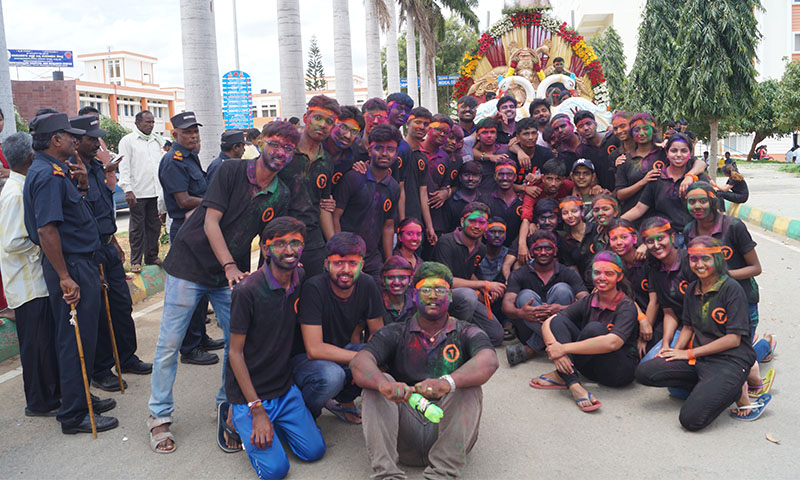
The Hospital is geared to provide excellent service in multi-disciplinary ICU, Surgical ICU, Isolation ICU, Pediatric ICU, Neonatal ICU, Cardiac ICU and others. These specialized intensive care units are specially staffed and equipped to provide the highest level of intensive care to patients. “We are also providing super speciality services in the field of neurosurgery, plastic surgery, pediatric surgery, urology, cardiology, nephrology, medical gastroenterology, and medical oncology,” says Dr Shivaramu.
The Road Ahead
Admission to MBBS and MD/MS programmes at AIMS is through merit-based National Eligibility Cum Entrance Test (UG/PG) conducted by the Government of India. “Every aspirant who is willing to get admitted to AIMS should not only meet the eligibility requirements as set by the Government of India but is also expected to have qualities like discipline, compassion and empathy, responsibility, humility and should have a sense of duty, service and social responsibility,” states Dr Shivarau.
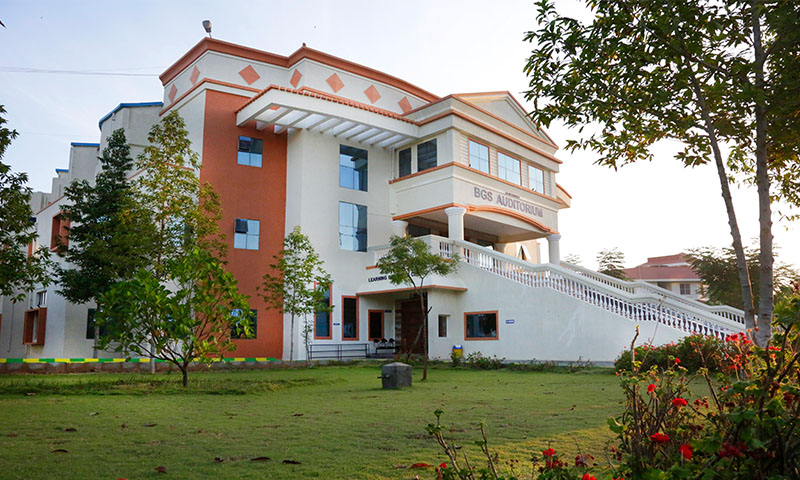
Today, during this time of the pandemic, immediate plans of the institution are to ensure the safety and safeguard the interest of the patients, students, community, and our workforce. AIMS has taken all measures to ensure best practices in online teaching, learning and assessment. Besides, the COVID-19 RT PCR virology lab at AIMS will serve the community by providing timely diagnosis and management of COVID-19 cases. “Safety of our workforce will continue to be of paramount importance to us, and all measures will be taken to ensure the same,” says Dr Shivaramu.
At the same time, AIMS is also progressing rapidly towards getting NAAC accreditation and higher-level NABH accreditation for the Hospital. “We are working towards establishing fully equipped and an ultra-modern skills lab and high-fidelity simulation centre for facilitating the training of our undergraduate and postgraduate students,” shares Dr Shivaramu. AIMS is in the process of enhancing the undergraduate admissions to 250 and completing a new multi-super speciality hospital block, starting of new DM/MCH courses, enhancing existing MD/MS seats to 150. Undoubtedly, AIMS is striving towards becoming a centre of excellence with an emphasis on socially meaningful medical education, research, and healthcare.




